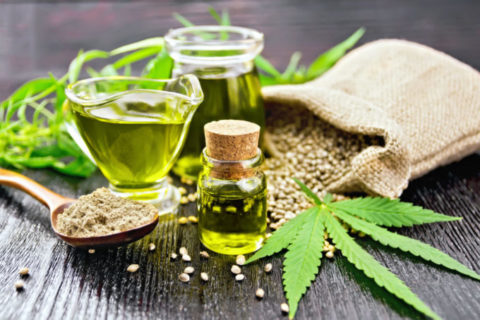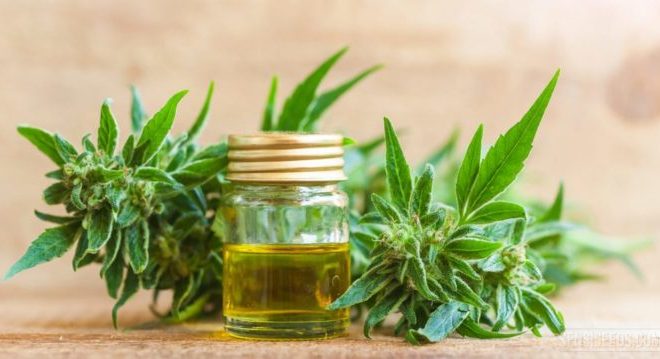Variety of CBD Oils

When learning about CBD oil, the terms you may come across into are “Isolate” “Broad-spectrum” “Full spectrum” or “Nano CBD” What do these extraction terms mean? More importantly, how do they affect your CBD oil?
What Is CBD Isolate?
CBD isolate almost always originates from agricultural hemp and is extracted through CO2 extraction technology. CBD isolate is nearly 100% cannabidiol and contains high levels of pure, extracted CBD. In the extraction and refining process, the CBD is literally isolated from the 500 other compounds in the hemp plant. To create a pure CBD isolate it is then added to a carrier oil that is high in fatty acids.
All legal hemp-derived CBD oils can only contain up to a 0..3% THC content, which is not enough to produce psychoactive effects. Isolates are also a great place to begin with as it helps you get the feel of CBD.
Pros of CBD Isolate
- Simple: With CBD isolate you know exactly what you’re getting: Cannabidiol and nothing else. Some brands will add terpenes back into the mix to provide natural hemp flavor but for the most part, isolates are made with CBD alone. For that reason, CBD isolate can make it easier to achieve the exact dosage without having to guess if there are other ingredients diluting the dose.
- Versatile: CBD isolate often comes in a powdered form. This powder makes it easy to ingest CBD in a form that works for you. You can place the powder directly on the tongue, mix it into the liquids, food or edibles. It is also possible to purchase CBD isolate in soft capsules as well.
- Confidence: With CBD isolate, there is rarely any THC (tetrahydrocannabinol ) present. The vast majority of CBD oil products on the market already contain less than 0.3% THC, but if you’re concerned about THC or are highly sensitive to its effects, an isolate may be the best product for you.
Cons of CBD Isolate
- No Entourage Effect: The entourage effect is a term that refers to the way whole plant compounds work together to produce greater effects in the body. The cannabis plant contains over 100 cannabinoids (THC and CBD included) each with their own impact on the human body. As CBD isolate is pure cannabidiol, the therapeutic benefits by the entourage effect are lost. Furthermore, precise and typically high doses of isolate are required to start to feel the benefits of the cannabis plant.
What Is Full-Spectrum CBD Oil?
Full-spectrum CBD oil refers to a diverse profile of cannabinoids (CBD, CBG, CBN, CBDa, THC, and THCa), terpenes, and other phytonutrients from the hemp plant. This type of CBD is extracted through various methods, like ethanol extraction, supercritical CO2 extraction, or other techniques.
In general, a full-spectrum CBD oil has a cannabinoid profile nearly identical to that of the hemp plant.
Pros of Full-Spectrum CBD Oil
- Entourage Effect: The diverse array of cannabinoids and terpenes in full-spectrum CBD oil work together to allow for a broader range of whole plant benefits.
- Taste: Not all full-spectrum CBD oil comes from the hemp plant. Sometimes it originates from high-CBD cannabis, which typically has a high terpene content when compared to agricultural hemp. Terpenes are found in almost every plant, fruit, and vegetable and in addition to providing health benefits, can produce pleasant flavor profiles and aromas. Because of this, full-spectrum CBD oils often contain all the earthy and tasty flavors of natural hemp.
- Avoids the Bell-Shaped Dose-Response Curve: The bell-shaped dose-response curve is a visual representation of how certain stimuli—in this case pure CBD—are least effective when taken in very small and very high doses. Because of this effect, CBD isolate requires precise dosages to achieve the maximum therapeutic benefits, whereas full-spectrum CBD extracts offer health benefits even at very low doses.
Cons of Full-Spectrum CBD Oil
- Integrity: Some vendors will claim that their products contain full-spectrum CBD oil but an analysis of their product does not back up this claim. Always check the Certificates of Analysis. If CBD is the only cannabinoid appearing on the laboratory test results, it is not a full-spectrum product.
CBD Isolate vs. Full-Spectrum CBD Oil
The choice between a CBD isolate and a full-spectrum CBD oil will depend on your preferences. A full-spectrum product can provide a wider range of potential benefits but some people may prefer the dosage control and versatility of a CBD isolate.
Not everyone will respond to CBD oil the same way, making it difficult to say one product is definitely better than the other.
It is important to have a conversation with your physician. Although generally well tolerated, CBD oil can interact with medications like certain antidepressants and antibiotics. Once you know you can use CBD without any problems, you may have to try what works best..
Broad-Spectrum
Broad Spectrum CBD is a bit of a mix between both CBD isolate and Full Spectrum CBD. Essentially, Broad Spectrum CBD is Full Spectrum CBD but does not contain any detectable traces of THC.
Nano CBD
Nano CBD refers to a compound where the molecules of CBD are shrunk down to extremely tiny sizes (less than 100nm) and then turned into a water-based form. This process allows the CBD to pass through skin more easily and quickly than any oil-based form.
Leave a Reply
You must be logged in to post a comment.



